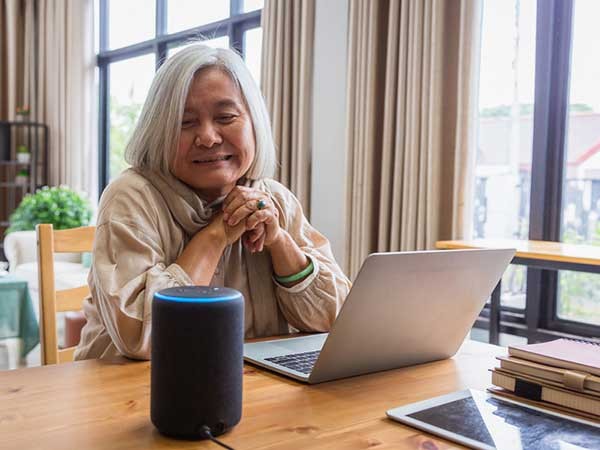
Assessing AI in the Postoperative Arena

Dr. Waddah Al-Refaie, chair of the Department of Surgery at CHI Health Clinic and Creighton University is leading a national research project to determine if patients recovering at home from surgery might benefit from communicating with an AI device, like Alexa. Five Creighton-affiliated gastrointestinal surgeons are also involved in the study.
“Will it save lives? Will it improve care? Or will it worsen known disparities in cancer care? We are testing that question via a randomized clinical trial,” said Dr. Al-Refaie.
Patients from high-risk populations who are recovering from high-risk operations will be included in the five-year, $3 million study, which will allow trial participants recovering at home from gastrointestinal surgery to communicate with care teams via an enhanced Alexa-like device.
The voice-assisted remote patient symptom monitoring system (VARSMS) will be used to check in about dietary and medication schedules, for example. Along with natural language processing (NLP) designed to recognize accent and cadence, the AI technology will be evaluated for its potential to provide real-time and case-relevant responses.
The study also includes Maryland-based MedStar Health Research Institute, and Georgetown University School of Medicine. The ability to compare results from urban East Coast and rural Nebraska locales was of interest to the National Institutes of Health on Minority Health and Health Disparities (NIMHD), which is funding the trial.
Ethno-racial minorities and rural populations alike can experience challenges due to poverty, limited health care access, technological barriers, co-morbidities and less rigorous support systems.
“That places them at higher risk for postoperative complications and even death,” Dr. Al-Refaie said. Black and Hispanic patients, for example, have been found to be twice as likely as white patients to experience complications after gastrointestinal cancer surgery.
“The overarching goal of this project is to reduce those disparities in health care,” he said. “We hope to explore how these tools can improve the patient-provider relationship throughout the continuum of care.”
You can connect with Dr. Al-Refaie via email at: [email protected].